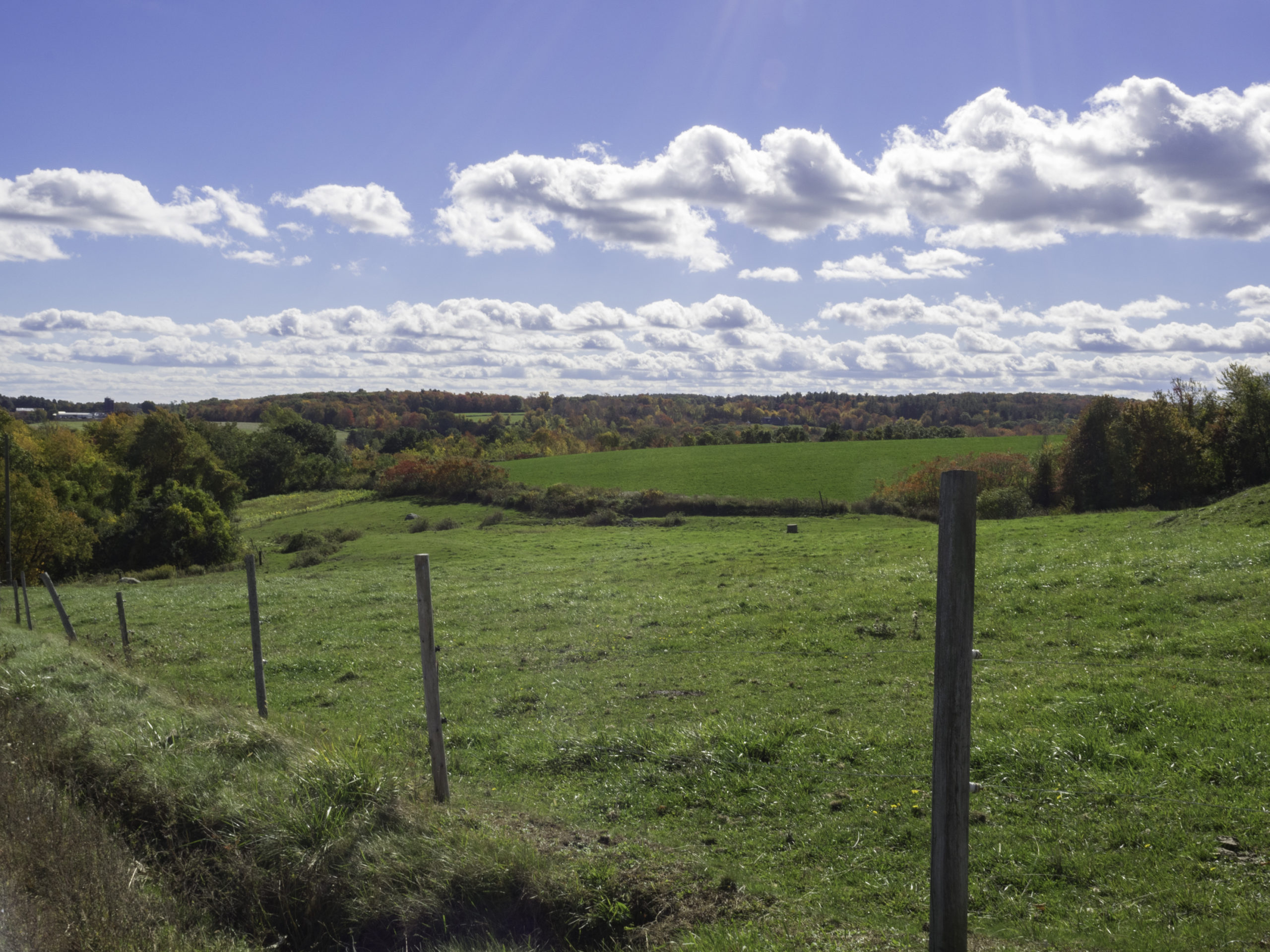The Landscape - The Watershed Filter

When the glacier scraped through the Blackstone Heritage Corridor 15,000 years ago, it created hills, swales, and depressions. Then settlement patterns and subsequent industrialization made alterations and additions to the landscape.
Today, the characteristics of the land form community aesthetics and wildlife habitats, and improve water quality. The landscape that confines the Blackstone River is made of a beautiful variety of hilltop villages, farms, and forests. The hilltop villages often represent the oldest extant settlements in the region. The most distinctive and historically-significant landscape features are the mill villages. At either end of the Blackstone Heritage Corridor are densely-populated urban centers that are struggling to retain their natural features.
Habitats provide food, water, shelter and living space for species. It is where animals can eat, rest, and reproduce. Each type of habitat is important to many species.
Large areas of open space, contiguous farmland, and forests create wildlife corridors that allow species to move through the Valley. The variety of habitats in the region are significant and support a healthy wildlife population. They include:
- Wetlands: open water (ponds, lakes) marshes, bogs, vernal pools, shrub swamps, and forested swamps.
- Forests: floodplain forests and upland forests.
- Open space and transitional areas: fields, brush, stone walls, stone outcropping, edges between habitats like field borders.
The landscape acts as a giant filtration system for the Blackstone River and its tributaries, absorbing rainwater and runoffs and eliminating some of the contaminants before they can reach the river. As open space is developed and paved over, the filtration system is diminished and water quality suffers.
Twenty-first-century growth patterns create other problems in the landscape. Decentralized growth consumes wildlife corridors and the natural filtration system of open space. Intelligent growth through creative planning will mitigate those impacts.

Discover more...
BHC Community Planning and Revitalization
Massachusetts Department of Conservation and Recreation
Grafton Land Trust
Greater Worcester Land Trust
Metacomet Land Trust
Central Massachusetts Regional Planning Commission
Trustees of Reservations at Cormier Woods
Friends of Upton State Forest
Rhode Island Department of Environmental Management
Audubon Society of Rhode Island
Burrillville Land Trust
Cumberland Land Trust
Glocester Land Trust
Lincoln Municipal Land Trust
Smithfield Land Trust
Grow Smart Rhode Island
State of Rhode Island, Division of Planning
